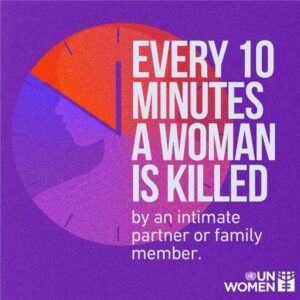
Armed Conflicts, Civil Society, Democracy, Global Governance, Headlines, Human Rights, IPS UN: Inside the Glasshouse, Middle East & North Africa, TerraViva United Nations

The International Criminal Court (ICC) Headquarters in The Hague, Netherlands. Credit: ICC
ICC issues arrest warrants for Israel, Hamas leadership: what happens next?
– As of last week, in the wake of the Nov. 21 issuance by the International Criminal Court (ICC) of arrest warrants for Israeli Prime Minister Benjamin Netanyahu and former IDF Defense chief Yoav Gallant, all eyes turned to Washington to see the what the response of Israel’s main backer would be.
The charges were for “Crimes Against Humanity” and “War Crimes” for using starvation as a method of warfare in Gaza, something is explicitly forbidden in international law. A HAMAS operative, Muhammad Deif, who may already be dead, was also charged. One would think that the US should find it easy to agree. But what was the message from the Biden White House?
Press spokesperson Karine Jean-Pierre said that the United States of America “Rejects the ICC ruling,” as if the International Criminal Court were just an off-beat punk yelling his head off in Lafayette Park just across from the presidential residence. But the prestigious court in the Hague has no option. It is bound to rule according to the law. It’s actions are neither political nor enacted on a whim.
The international law that created the treaty was endorsed by a host of national governments around the world—except for a few, Israel and the United States being the most prominent.
The US is not a State Party (signatory) to the ICC, even though 124 countries have signed the Rome Statute that created the ICC in 2002. Presidents Clinton and Obama tried to get ratification from the US Senate but failed. George W. Bush and the Neo-Cons flatly rejected the idea of endorsing the statute, not wanting any restrictions on their disastrous plan to attack Iraq.
Just the day before at the United Nations, the Security Council voted overwhelmingly 14-1 to demand a cease-fire in Gaza. But the US, by a single vote –because it has veto power under the rules set up in the wake of WW II—blocked the resolution.
The argument that a cease fire would help bring the hostages home, not hinder their release, was urged by the council but fell on deaf ears.
In a shameful action that will be long remembered throughout the world, the US representative, Deputy Ambassador Robert Wood, raised his hand to block the resolution. These two actions in the same week—flat out rejection of the ICC warrants and blocking a Security Council cease fire resolution intended to relieve massive human suffering, when taken together, mean not only that the United States is fully on board with the endless slaughter of civilians in Gaza under continuous Israeli bombing, but it now supports starving women and children too.
This is a stain that will not go away. Protestors in the streets and on university campuses have long been chanting, “Genocide Joe has got to go!” How out of touch is the near-senile President Biden? How corrupt, misguided, and inhumane do you have to be to make that decision, condemning the United States to be forever labeled as contributing to war crimes?
It’s true that Washington has long supplied arms to Israel, including during this conflict, but to support continued starvation and bombing of civilians as a matter of policy is much worse—either deliberately evil or insanity. No fancy negotiating tricks are allowed when innocent lives are at stake.
And where does the recent Democratic nominee for President, Vice President Kamala Harris, stand on all this? Does she have a voice within the Administration? She pledged repeatedly if elected to increase, not decrease, humanitarian aid to Gaza.
What’s wrong with advocating a cease fire after 13 months of massive, one-sided bloodletting that has killed and wounded nearly 150,000 people among the unfortunate citizens of Gaza?
Let’s define terms: A war is when both sides shoot at each other. A Turkey Shoot is different—the Turkey doesn’t have a chance, and sharpshooters just keep shooting to see who has the best aim. A slaughterhouse is when only one side has all the power and just keeps killing on a massive scale.
Israel’s troops have guns and bombs supplied by the United States, Germany, and the UK, and continues to shoot and bomb people in Gaza long after the other side has ceased firing. If the operation is a manhunt, call it a manhunt. If a reprisal, call it a reprisal. If ethnic cleansing, call it that. If the term “Warsaw Ghetto” is fitting, call it that. But don’t call it a righteous battle if the atrocities keep piling up on just one side with no sign of stopping.
Does anybody know how long it has been since HAMAS has fired rockets, or even machine guns at Israeli troops? You would think that if that were the case the slick Israeli lie machine would trumpet that information. So why not cease firing today, not tomorrow?
Why doesn’t the esteemed American President, “Genocide Joe,” just decide for once to do the right thing?
James E. Jennings, PhD is President of Conscience International, an aid organization that has worked in Gaza over many years.
IPS UN Bureau











